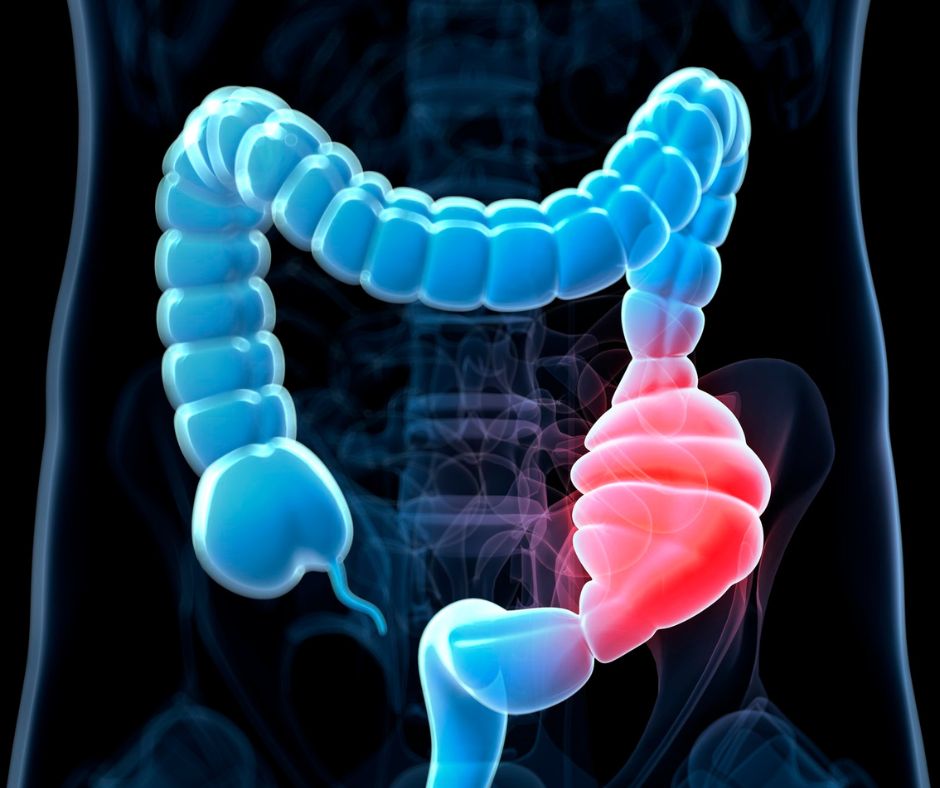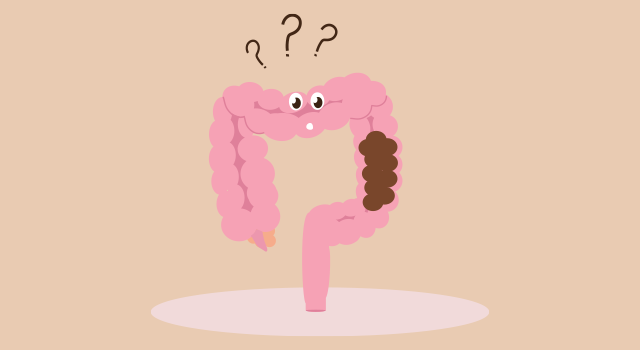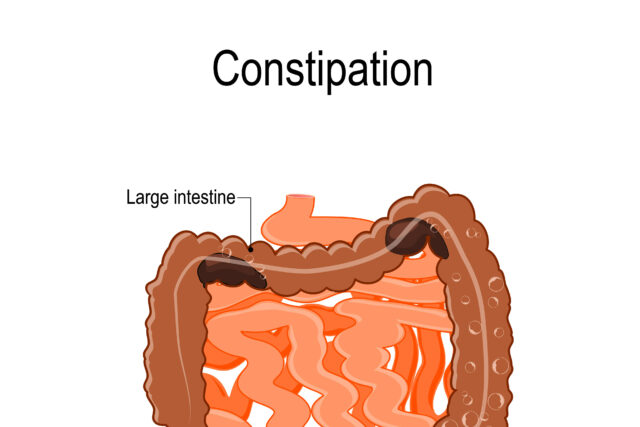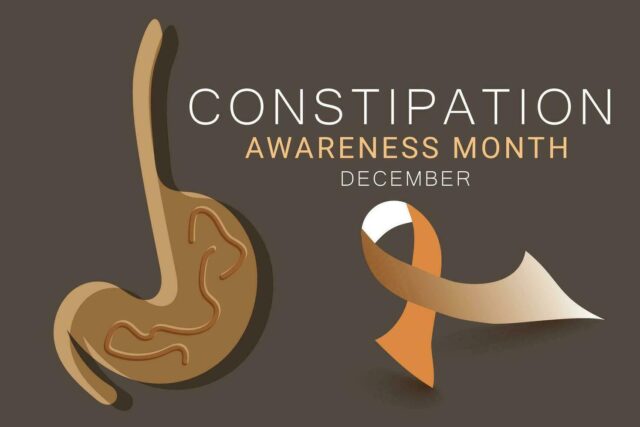Know More about Constipation:
What is Constipation?
- Constipation refers to a condition in which a person experiences difficulty in passing stools, infrequent bowel movements, or a sensation of incomplete evacuation of stool.
- In other words, constipation is defined as having fewer than three bowel movements per week.
- While the normal frequency of bowel movements varies among people, going longer than three days without one can lead to harder stools, making them more difficult to pass.
The List of Causes:
- Dietary and lifestyle changes
- Alterations to daily routines, especially during travel
- Inadequate hydration
- Low fiber intake
- Excessive consumption of dairy products
- Sedentary lifestyle
- Ignoring the urge to defecate
- Stress
- Advancing age
- Intestinal obstruction
- Diverticulitis
- Overuse of laxatives
- Certain medications such as prescription pain relievers, antidepressants, antihistamines, blood pressure medications, anti-seizure drugs, and iron supplements
- Antacid medications containing calcium or aluminum
- Eating disorders
- Irritable bowel syndrome (IBS)
- Pregnancy
- Dysfunction of nerves and muscles in the digestive system
- Colon cancer
- Neurological conditions like Parkinson’s disease or multiple sclerosis
- Hypothyroidism (underactive thyroid)
- Hypercalcemia, caused by factors like overactive parathyroid glands, specific medications, or certain cancers such as lung, breast, or multiple myeloma.
Symptoms:
- Few or no bowel movements
- Straining during bowel movements
- Hard or small stools
- A feeling of incomplete evacuation
- Abdominal bloating or discomfort
- Sensation of rectal blockage
- Stomachaches or cramps

When You Need Medical Attention:
- Suddenly developed constipation accompanied by abdominal discomfort or cramping, and an inability to pass stool or gas.
- Presence of blood in your stool.
- Unintentional weight loss despite no change in diet or activity level.
- Severe pain during bowel movements.
- Constipation persists for over two weeks despite attempts to address it.
- Noticeable changes in the size, shape, or texture of your stool.

Identifying Risk Factors:
- Advancing age: Someone over 65 may experience a slowdown in metabolism and weakening of the muscles in the digestive tract, leading to reduced bowel movement efficiency.
- Assigned female at birth: Hormonal fluctuations during pregnancy and postpartum can impact the digestive system, with pressure from the uterus potentially obstructing bowel movements.
- Sedentary lifestyle: Insufficient physical activity can disrupt normal digestive processes, contributing to constipation.
- Mental health conditions: Depression or eating disorders may result in decreased exercise, poor dietary habits, and medication usage, all of which can lead to constipation.
- Inadequate fiber intake: A diet lacking in high-fiber foods can result in insufficient bulk and slow movement of stool through the intestines.
- Medications: Various medications, including pain relievers, antidepressants, antacids, iron supplements, allergy medications, anti-seizure drugs, and blood pressure medications, may disrupt normal bowel function and cause constipation.
- Neurological and digestive diseases: Conditions such as Parkinson’s disease, stroke, spinal cord injury, multiple sclerosis, irritable bowel syndrome (IBS), colorectal cancer, and diverticulitis can affect the functioning of the digestive system, leading to constipation.
Effective Remedies:
- Increase water intake: Aim for an additional two to four glasses of water daily, unless advised otherwise by your doctor.
- Consume warm liquids: Particularly beneficial in the morning, warm beverages can stimulate bowel movements.
- Incorporate fruits and vegetables: Include a variety of fruits and vegetables in your diet to boost fiber intake and promote regularity.
- Incorporate prunes and bran cereal: These foods are known for their natural laxative effects and can aid in relieving constipation.
- Maintain regular exercise: Engage in physical activity most days of the week to stimulate intestinal muscle activity.
- Respond to the urge to defecate: Listen to your body’s signals and avoid delaying bowel movements.
- Consume probiotic-rich foods: Foods like yogurt and kefir contain beneficial bacteria that can aid in digestive health.
- Avoid processed meats, fried foods, and refined carbs: Opt for lean meats, poultry, and low-fat dairy products instead.
- Keep a food diary: Monitor your diet and note any foods that may exacerbate constipation.
- Adjust toilet posture: Experiment with different positions, such as raising your feet or squatting, to facilitate easier bowel movements.
- Minimize distractions in the bathroom: Avoid using electronic devices while attempting to defecate to focus on the task at hand.
- Reduce alcohol and caffeine intake: These substances can contribute to dehydration and worsening constipation.
- Explore bowel training: Consult with your doctor about establishing a routine to encourage regular bowel movements, such as after breakfast each morning.
- Take your time: Avoid rushing when using the bathroom and allow yourself to relax, facilitating the relaxation of digestive muscles.
- Discuss medications with your doctor: If medications are contributing to constipation, consult with your healthcare provider about potential alternatives or adjustments.
Preventing Constipation:
- Increase High-Fiber Foods:
- Incorporate more fruits, vegetables, and whole grains into your diet.
- These foods are rich in fiber, which promotes regular bowel movements.
- Reduce Low-Fiber Foods:
- Limit consumption of processed foods and meats, which tend to be low in fiber and can contribute to constipation.
- Consume Probiotic Foods:
- Include foods like yogurt and kefir in your diet, as they contain probiotics that support gut health and digestion.
- Stay Active:
- Aim for at least 30 minutes of physical activity daily.
- Regular exercise stimulates bowel function and helps maintain overall digestive health.
- Hydrate Properly:
- Drink at least eight 8-ounce glasses of water per day to stay adequately hydrated.
- Dehydration can exacerbate constipation, so it’s essential to maintain fluid intake.
- Avoid Dehydrating Substances:
- Limit alcohol and caffeine consumption, as they can contribute to dehydration, which in turn may worsen constipation.
- Establish a Bowel Movement Routine:
- Create a consistent schedule for having a bowel movement, such as after breakfast in the morning.
- Regularity can help train your body’s natural rhythm.
- Respond Promptly to Urge:
- Don’t delay going to the bathroom when you feel the urge to defecate.
- Ignoring the urge can lead to stool hardening and difficulty passing.
- Consider Supplements:
- If necessary, consider taking fiber or magnesium supplements under the guidance of a healthcare professional to support bowel regularity.
- Keep a Food Diary:
- Monitor your dietary habits and note any foods that seem to exacerbate constipation.
- Avoiding these triggers can help maintain regularity in bowel movements.
By adopting these preventive measures, you can support your digestive health and minimize the risk of constipation in the future.
Consistency in lifestyle habits plays a key role in maintaining optimal bowel function and overall well-being.



MOST COMMENTED
Animal-Based Proteins / Casein Protein / Dietary Protein / High-Protein Diets / Pea Protein / Plant-Based Proteins / Protein / Protein Deficiency / Protein Supplements / Proteins / Whey Protein / Whey Proteins
Pea Proteins: The Best Plant-Based Protein Alternative?
Foot Problem / Foot Health
Revolutionize Your Recovery: Natural Remedies for Plantar Fasciitis – Fresh Home Keepers
Dietary Supplement
Revitalize Your Health: The Magic of Red Yeast Rice Capsules
Exercises and Footwear Tips for Hammertoe Relief / Foot care / Foot Health / Foot Pain / Foot Problem / Hammertoes
Unlock Effective Exercises and Footwear Tips for Hammertoe Relief
Hammertoes / Foot Health / Foot Pain / Foot Problem
Unlock Relief: Essential Guide to Hammertoes Causes, Symptoms, and Treatments
Moringa Powder / Moringa Supplement
Green Superfood: The Ultimate Guide to Moringa Leaf Powder
Moringa Powder
Supercharge Your Diet: The Incredible Impact of Moringa Leaf Powder
Animal-Based Proteins / Casein Protein / Dietary Protein / High-Protein Diets / Pea Protein / Plant-Based Proteins / Protein / Protein Deficiency / Protein Supplements / Proteins / Whey Protein / Whey Proteins
Is Protein Powder Safe for Teenagers and Children?
Animal-Based Proteins / Casein Protein / Dietary Protein / High-Protein Diets / Pea Protein / Plant-Based Proteins / Protein / Protein Deficiency / Protein Supplements / Proteins / Whey Protein / Whey Proteins
Unlock the Power of Proteins for Optimal Gut Health
Shin Splints / Foot Health / Foot Problem
Unlock Relief: Essential Guide to Overcoming Shin Splints – Discover Healing Strategies